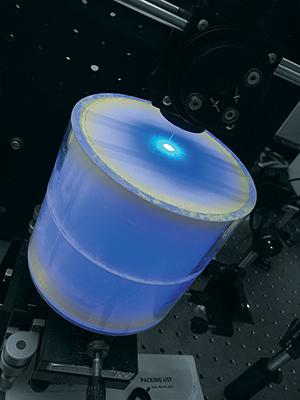New device detects extremely low levels of contamination in water
Illustration: Texas A&M College of Engineering
Technology capable of sampling water systems to find indicators of fecal matter contamination that are thousandths and even millionths of times smaller than those found by conventional methods is being developed by a team of researchers at Texas A&M University.
Working with a team of collaborators, Vladislav Yakovlev, professor in the Department of Biomedical Engineering, has developed an ultrasensitive detection method that can detect molecules associated with human and animal fecal matter in water systems. These extremely small indicators, he explains, have been traditionally difficult to detect but can signal greater levels of contamination, which can lead to illness and even death.
The team’s research is funded by the National Science Foundation and is featured in the journal “Proceedings of the National Academy of Sciences.” It details the development of technology that Yakovlev characterizes as affordable, highly sensitive, easy to implement and capable of delivering analysis of water samples in real time. That combination of benefits, he says, gives the system a leg up on other detection technologies, making it ideal for use not only in the United States but in developing countries, which often face water quality issues.
#TAMUresearch


